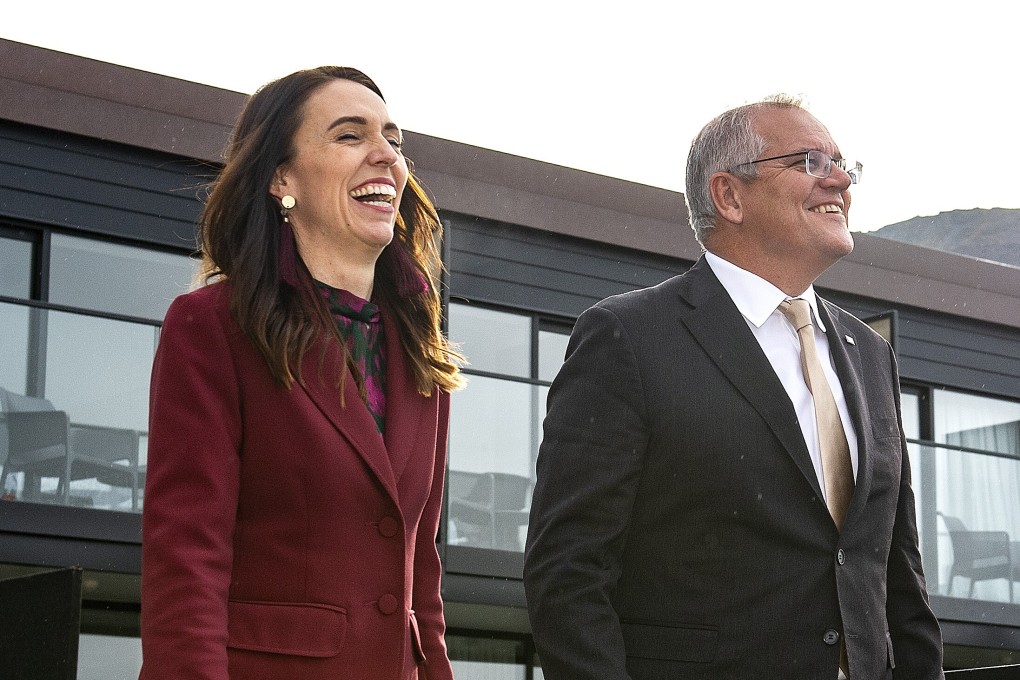China will never come between Australia and New Zealand, Morrison and Ardern say
- Australian PM Scott Morrison says the neighbours stand ‘resolutely together’ on their shared principles over human rights and trade
- In a joint statement after their meeting in New Zealand, the leaders expressed concern about the situations in Hong Kong, Xinjiang and the South China Sea

Morrison said those who wished to split Canberra and Wellington over their policy towards Beijing would not succeed as the neighbours stood “resolutely together” on their shared values and principles.
“We will continue to work together in that way, and I have no doubt there will be those who seek to undermine Australia and New Zealand’s security by seeking to create points of difference, which are not there,” Morrison said.
In what appeared to be a veiled reference to China, Morrison said “those far from here” and “many others” sought to divide the partners and allies, without mentioning any country by name.
New Zealand Prime Minister Jacinda Ardern, who welcomed her Australian counterpart in Queenstown, said she did not “detect any difference” between the sides on the “importance of maintaining a very strong and principled perspective on issues around trade, on issues around human rights”.
“And you’ll see that Australia and New Zealand have broadly been positioned in exactly the same place on these issues, consistently,” Ardern said. “So I really push back on any suggestion we are not taking a strong stance on these incredibly important issues.”
In an increasingly complex geostrategic environment, “family is incredibly important, and Australia, you are family”, she said.